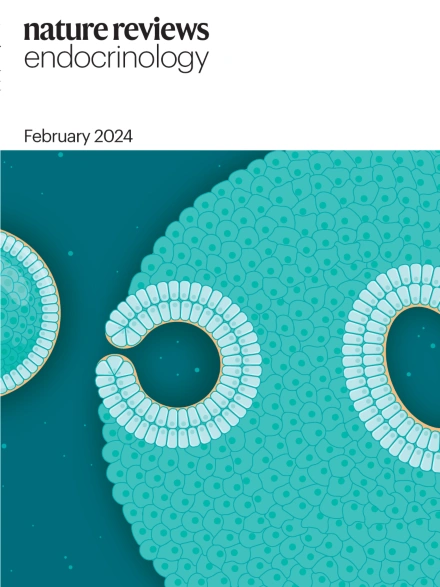JNK掌舵:解码肥胖驱动的胰岛素抵抗
IF 40
1区 医学
Q1 ENDOCRINOLOGY & METABOLISM
引用次数: 0
摘要
早在21世纪初,肥胖就被认为是2型糖尿病(T2DM)的主要危险因素,但联系这两种代谢状况的复杂分子机制仍不清楚。肥胖显然与慢性炎症和胰岛素抵抗有关,但这些过程如何在分子水平上相互交织仍然是一个谜。为什么肥胖会引发胰岛素抵抗?是什么细胞信号连接了这些情况?这些都是Gökhan S. Hotamışlıgil和他的同事们着手回答的问题。当时,脂肪组织出人意料地成为免疫活动的活跃部位,产生高水平的细胞因子(如肿瘤坏死因子(TNF))和代谢应激诱导分子(如游离脂肪酸)。在肥胖中,已知TNF和游离脂肪酸水平升高会导致炎症和代谢功能障碍,但其精确的分子靶点尚不清楚。一个新出现的候选者是一组被称为c-Jun n末端激酶(JNKs)的蛋白质。jnk是应激信号通路中一个有趣的组成部分,但在当时还没有得到足够的重视。Hotamışlıgil和同事们想要调查jnk是否可能参与驱动肥胖诱导的胰岛素抵抗。本文章由计算机程序翻译,如有差异,请以英文原文为准。
JNK at the helm: decoding obesity-driven insulin resistance
求助全文
通过发布文献求助,成功后即可免费获取论文全文。
去求助
来源期刊

Nature Reviews Endocrinology
医学-内分泌学与代谢
CiteScore
42.00
自引率
0.70%
发文量
158
审稿时长
6-12 weeks
期刊介绍:
Nature Reviews Endocrinology aspires to be the foremost platform for reviews and commentaries catering to the scientific communities it serves. The journal aims to publish articles characterized by authority, accessibility, and clarity, enhanced with easily understandable figures, tables, and other visual aids. The goal is to offer an unparalleled service to authors, referees, and readers, striving to maximize the usefulness and impact of each article. Nature Reviews Endocrinology publishes Research Highlights, Comments, News & Views, Reviews, Consensus Statements, and Perspectives relevant to researchers and clinicians in the fields of endocrinology and metabolism. Its broad scope ensures that the work it publishes reaches the widest possible audience.
 求助内容:
求助内容: 应助结果提醒方式:
应助结果提醒方式:


